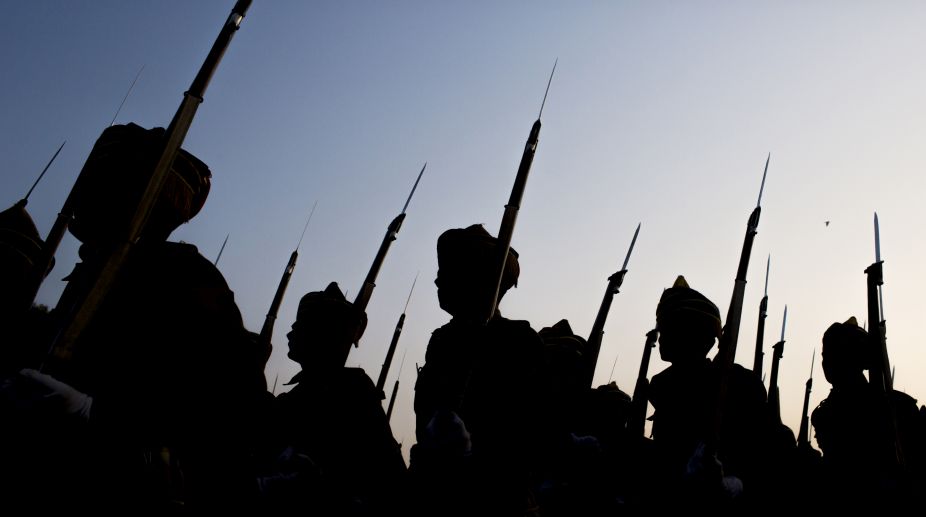Top army commanders have carried out a detailed analysis of India's internal and external security threats and decided to push for modernisation of the force, besides advocating a tri-service doctrine to deal with major security challenges.
At a six-day annual commanders' conference, the top brass of the army also deliberated extensively on human resource policy of the force, including growing complaints against the Sahayak system, and decided to evolve a “more pragmatic” approach to address such issues.
Advertisement
On promotion of its personnel, which is another sticky issue, the conference felt that the “highly pyramidal structure” in the army results in over 50 per cent of the workforce not being promoted despite being highly competent and decided to go for enhanced transparency and inclusiveness to ensure “greater equability”.
Army Chief General Bipin Rawat, during the deliberations, called for a more “participative” form of policy formulation to address human resource issues, and senior officials said branches of the army headquarters concerned have accordingly been directed to initiate wide-ranging interactions on it.
In his address at the valedictory session, General Rawat stressed the need to work in a collaborative manner for maintaining combat effectiveness of the army and sought greater focus on enhancing air defence and aviation capabilities.
“It has been decided to give heft to the modernisation plan,” the army said in a statement sharing details of deliberations at the conference which came to an end on April 22.
It said Gen Rawat expressed confidence at the way the army has been adapting itself to the “dynamic” internal and external operational environment while stressing the need for sustained and holistic modernisation of the force.
India's security challenges including the situation in Jammu and Kashmir were discussed at length in the conference.
“He added that there is a need for sustained and holistic modernisation of the army wherein combat and manoeuvre arms, air defence and aviation are on high priority,” it said.
It said a comprehensive plan to speed up land acquisition for infrastructure development has been decided to be addressed through state governments.
The conference was also addressed by Chief of Air Staff BS Dhanoa and navy chief Admiral Sunil Lanba.
They laid emphasis on evolving a joint operational philosophy to deal with various security challenges.
“During the deliberations, a session was dedicated to discussion with the Ministry of Defence to evolve a more wholesome action plan on administrative and modernisation issues,” the army said.
In the backdrop of rising cases of jawans coming out against the Sahayak system and army personnel approaching courts for grievance redressal, the conference extensively deliberated on internal health of the force.
“During the deliberations, important issues having HR policy ramifications have been discussed. There is an impetus to evolve a more pragmatic HR plan. The core values of army though haven't changed; rapid societal changes and discernible impact of socio-economic aspirations on army have been a focus area,” it said.
In the recent months, a number of videos had surfaced in which some army jawans were seen voicing their anger over the colonial-era system, complaining about being made to do household chores of superior officers.
Referring to issues relating to promotions, it said, “The army unlike most government departments has a highly pyramidal structure, which results in over 50 per cent personnel not being promoted despite being highly competent thus necessitating optimum utilisation of this pool of competent personnel.”
“The conference deliberated measures to enhance transparency and inclusiveness leading to greater equability,” the army said.
It said the proposals to make the Short Service Officers entry scheme more popular, streamlining the intake pattern, employment of women officers and grant of honorary ranks to Junior Commissioned Officers and Non-Commissioned Officers have been deliberated with positive roadmaps.
The army commanders conference is an important event in the planning and execution process of the force. To ensure due diligence, decisions are taken through collegiate system comprising army commanders and senior officers.









